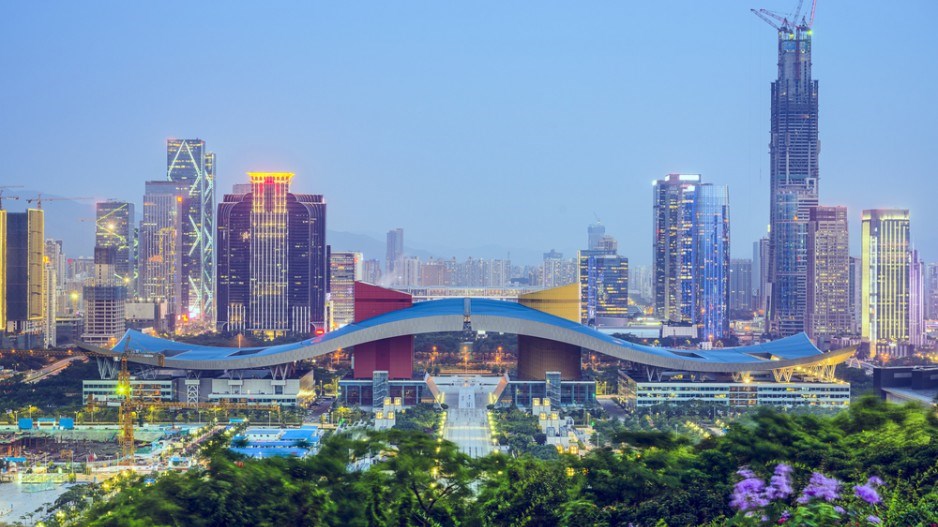Shenzhen’s prominence as a manufacturing hub is gaining kudos among young technology companies, especially those with a hardware focus, according to industry participants.
Success stories such as as drone maker DJI, and smartphone manufacturer Huawei, both of which have chosen Shenzhen as their headquarters, have drawn attention to the value of being closer to the technology manufacturing ecosystem.
“In Shenzhen, the supply chain is amazing and there are a series of software parks,” said Benjamin Joffe, a partner at HAX, one of the world’s most active early stage investors in hardware. “[Compared with Shenzhen,]everything in Silicon Valley is expensive, there is no supply chain and little expertise about manufacturing.”
“The supply chain is the most important thing that makes Shenzhen the capital of manufacturing,” said Allen Zhang, founder of Crazybaby, a maker of earphones. “There are a lot of satellite cities around Shenzhen such as Dongguan, Huizhou, Zhongshan [within one hour drive from Shenzhen center] and they can form a complete supply chain providing almost everything from raw materials to computer components at very low cost.”
Eli Harris, founder and chief executive of Ecoflow Tech, a personal energy storage start-up valued at more than US$10 million said there were advantages in being located in close proximity to centres of production.
“The people in the city [Shenzhen] know how to enlarge factory production efficiently and they are pragmatic and have real experience in manufacturing,” said Harris. “That is a big advantage of the city.”
Others experts said working from Shenzhen made it easier to work out technical problems by liaising directly with suppliers.
“Only in this city can we keep in close discussion with suppliers and maintain easily access to different manufacturers,” said Raymond Wong, a former employee of Huawei who now runs his own start-up Mokacam. “[The communication] is efficient and always in the same day, we can get answers from producers if we have questions.”
However, some industry experts expressed concern about the global ambitions of mainland start-ups, saying that on balance, things tend to work out better for most companies in the early stage when they don’t aim too high.
“Some Chinese start-ups are too eager to be a part of the global market before they have solved problems in the domestic [mainland] market,” said Bernard Moon, co-founder of SparkLabs Global Ventures, a fund that specialises in providing seed funding for start-ups. “Sometime we have to temper their enthusiasm to secure the achievements domestically.”
Among the common mistakes, Moon, whose fund is invested in 60 companies globally, said some start-ups fail to do basic research on potential customers and market scale before expanding overseas.
“But finally they find they are not ready for global markets,” he said.
Prior to making an international push, it is important that products should adapted to cater to specific markets, while the mindset of management should also change.
Edith Yeung, a general partner of 500 Startups, said Chinese companies, while good a doing business, often underestimate the importance of social relationships when it comes to expanding internationally. She added that the business culture in the United States places an emphasis on understanding their prospective partners before agreeing to do business.
“They want to know you first,” Yeung said.
Read the original story on the South China Morning Post




